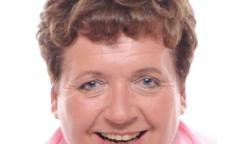Our Gender Pay Gap - 2018
From 6 April 2017, any employer in the UK with more than 250 employees is required by law to publish their gender pay gap annually, covering both pay and bonuses. The Epilepsy Society is committed to equality and inclusion, and we welcome the Government's requirements.
I am proud to publish our first gender pay gap report.
Today, our mean gender pay gap is -0.98%. This means men who work at the charity are paid slightly less than women. The difference between them in their average hourly rate of pay is 0.11p.
We are confident that our gender pay gap does not stem from paying men and women differently for the same or equivalent work. Rather, our gender pay gap is the result of the roles in which men and women work within the charity and the salaries that these roles merit.
Our median gender pay gap is -5.50%. The difference in the median average hourly rate of pay is 0.57p with women commanding a slightly higher hourly rate and is therefore shown as a negative figure. This reflects the higher number of women within the charity. This is not unusual within care providers which tend to be female-dominated particularly in those roles providing front-line care services to residents.
However, women at the Epilepsy Society are also well represented in our middle and senior management teams. And our median gender pay gap reflects the composition of our staff.
Our current gender make-up
Our current gender pay gap
| Mean pay gap | -0.98% |
| Median pay gap | -5.50% |
Bonus data
No bonus data to report as the Society does not operate a bonus scheme.
The proportion of males/females in each quartile pay band is as follows:
| Upper quartile (75-100% | Upper middle quartile (50-75%) | ||
| Male | 25% | Male | 29% |
| Female | 75% | Female | 71% |
| Lower middle quartile (25-50%) | Lower quartile (0-25%) | ||
| Male | 40% | Male | 28% |
| Female | 60% | Female | 72% |
Based on our quartile data above, where 69% of our workforce is currently female with 31% male, we might expect to see a similar distribution of 69% female across each pay quartile and 31% of male in each quartile. The gender pay data broadly reflects this distribution.
To summarise, as an organisation, Epilepsy Society does not have any concerns with our gender pay gap as evidenced by the data. However, we hope that we will be able to attract more men to apply for roles at the charity in the future.
We aim for diversity in the pool of candidates applying for roles with the charity and merit to be decisive in the selection decision. We shall continue with our commitment to ensuring that we recruit, select and remunerate all roles according to skills, knowledge, ability and experience as opposed to gender.
I confirm that the data reported is accurate to the best of my knowledge.
Clare Pelham,
Chief Executive
Epilepsy Society
Our people
Read biographies for members of our board of trustees, president and vice president, and our senior management team including our CEO Clare Pelham (pictured above).
Patron, President, and Vice Presidents
Meet our president Countess Howe and our various vice presidents including Former British Prime Minister David Cameron.
Board of trustees
Read the bios of our board of trustees including our Chair Kate Alcock (above), who was appointed Chair of the board of trustees in July 2023 and our Vice Chair Jackie Sullivan.



